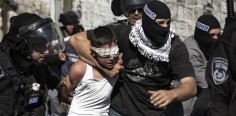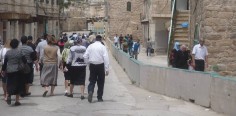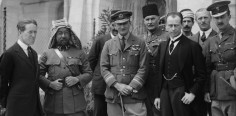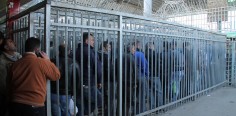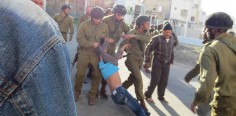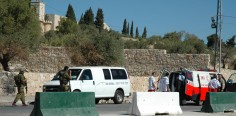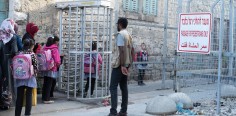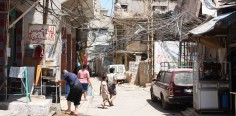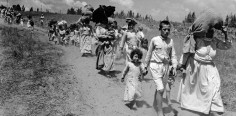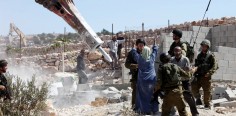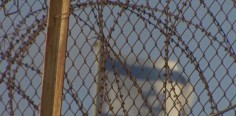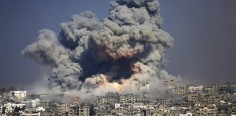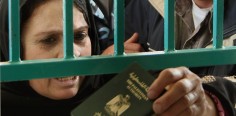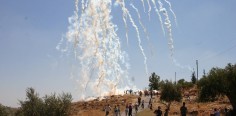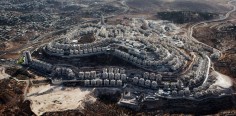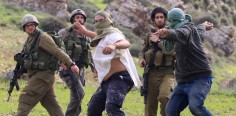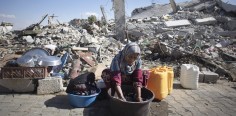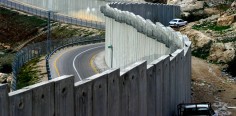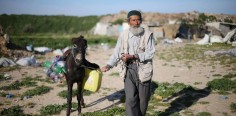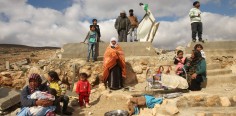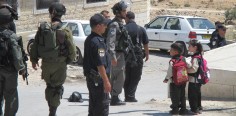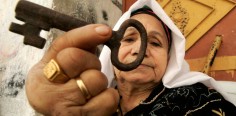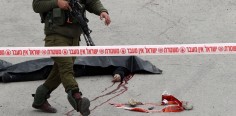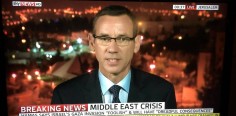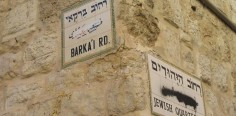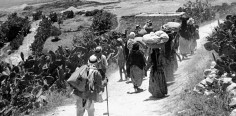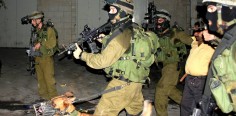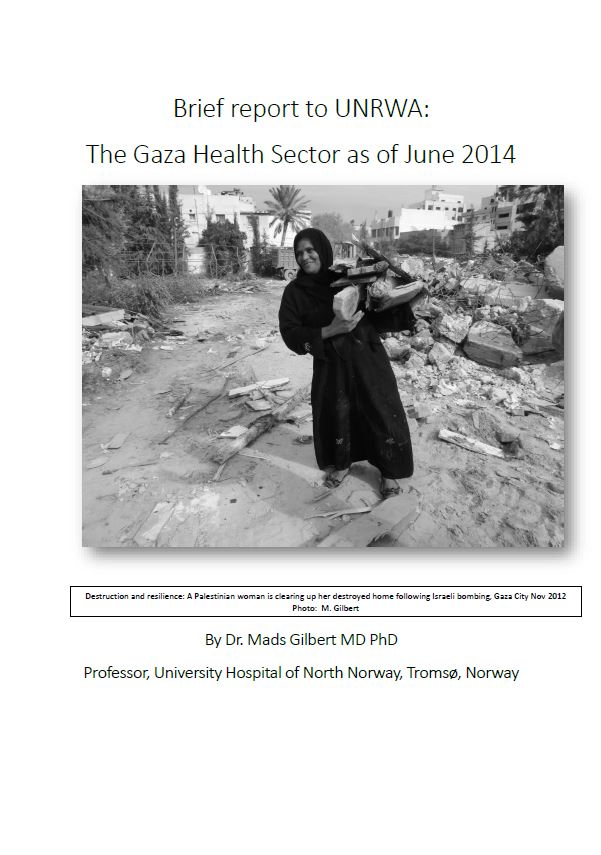DENIED MEDICAL TREATMENT
NO INDIVIDUAL SHOULD BE PHYSICALLY RESTRICTED FROM ACCESSING HEALTH CARE IN THEIR COUNTRY OR ARBITRARILY DENIED WHEN THEY NEED TO LEAVE THEIR COUNTRY FOR HEALTH CARE ABROAD.
ARTICLE 56, GENEVA CONVENTION IV
The ambulance is just a few hundred meters away.
Your child needs a lifesaving treatment, but you can't reach the hospital because a soldier has closed the road.
You beg him to let you through on foot. But he refuses.
Desperate, you take an alternative dirt road that adds more than an hour to your journey. And as the car bumps along, you watch helplessly as your child's condition deteriorates.
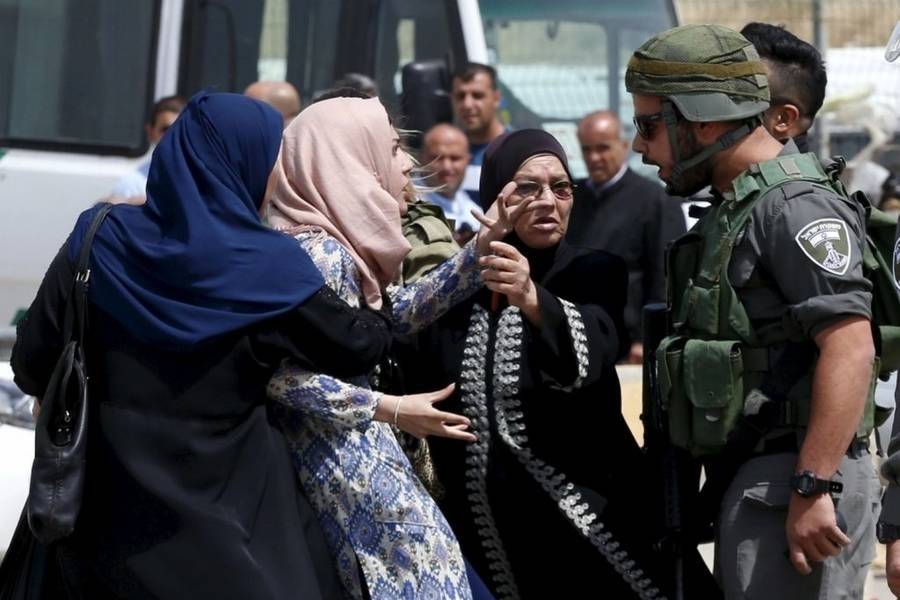
Denial of medical treatment is something which the Palestinians face on a regular basis.
Sometimes it is due to physical barriers like checkpoints or the Separation Wall. As a result, trips to a hospital can take hours instead of minutes. They can even be prevented altogether due to arbitrary closures.
As a result of such physical barriers, many women have had to give birth on the street, with most babies dying as a result.
More often, however, denials are bureaucratic.
Many therapies, like cancer treatments and open-heart surgery, are not available in Occupied Palestine. Gaza hospitals in particular, due to the Israeli siege and frequent attacks, even lack MRI and dialysis machines. They sometimes run out of even basic supplies like syringes, gloves and fuel for the generators that should refrigerate vaccines and medications.
To access these treatments, patients must be referred to hospitals in East Jerusalem, Israel, Egypt or Jordan. And to reach them, they need permits from Israeli Authorities.
It is a difficult, time-consuming and uncertain process that makes already-stressful medical conditions even more distressing. Of the 200,000 Palestinians that apply each year, around 40,000 requests are denied.
Many others are delayed until after the appointment, surgery or treatment date has passed.
Some applicants find themselves interrogated and asked to provide information about their friends and neighbors in exchange for a permit. And when they refuse, their applications are rejected. Others do not even apply for this reason.
Children can also be denied medical treatment if their accompanying relative is not approved by the authorities. Entire families can be denied any hope of a permit if one member of the family is serving time in Israeli prison.
As for Palestinian healthcare workers, it can be extremely difficult for them to reach work due to movement restrictions or continue their training due to the denial of education opportunities.
The Israeli government's influence on the Palestinian Authority's budget can also deprive the Palestinian Ministry of Health of much-needed funding. And, on top of all of this, Israeli authorities block the Ministry from buying lower-priced drugs from neighboring Arab markets and forces them to buy expensive drugs from Israel.
As always, Israeli authorities claim that their policies are necessary for security. Yet it's hard to imagine how such systematic denial of medical treatment and other barriers to public health can be good for anyone's security.
Rather, it is just another tool that they use to make life increasingly difficult for the Palestinians who refuse to leave their land.
We had been waiting for an urgent referral to an outside hospital for the past six days, until he died today.
Dr. Ismail YassinIf the soldiers had let him pass, the doctors might have been able to save his life. It takes only 5-7 minutes to get to the hospital from where we were on the road.
'Adnan a-ShtiyehOur baby died because he needed an incubator, but we couldn't get to the hospital, which was only two kilometers from our house, because of the curfew imposed by the Israeli army.
Tahani FatuahMy cousin and the doctor continued to try and persuade the soldiers and demanded that they let my father pass. The doctor showed the soldiers his physician's card, but the soldier still refused.
Sirin ShahadehI begged him to let me take my wife across, but he said, “Let her die, let her die, it doesn't interest me, it is forbidden to cross.” I begged him for fifteen minutes and I realized the soldiers would not let me cross. My begging didn't make them feel an ounce of compassion.
Fawziyeh a-DarkI told the soldier in Hebrew that I was taking my brother to hospital because his medical condition had deteriorated. He said that we were not allowed to cross the checkpoint. About twenty-five minutes later, an Israeli ambulance arrived. The team examined my brother and told me he was dead.
'Abd al-Fatah YunisThe Israelis still are not allowing me to get treatment. The doctors told me that my kidneys are barely functioning, and that I have a swollen spleen. [...] Now I also have pneumonia, and I am unable to walk without help. I get a blood transfusion every day. My blood tests are getting worse and my hemoglobin is down to eight.
Mahmoud a-NajarLearn More
Médecins Sans Frontières

Médecins Sans Frontières are a medical humanitarian organisation that delivers emergency aid to people based on need, irrespective of race, religion, gender or political affiliation. This link points to the Palestine section of their website featuring many articles, interviews, op-eds, patient stories, photos, videos etc.
View ResourcePHR Israel
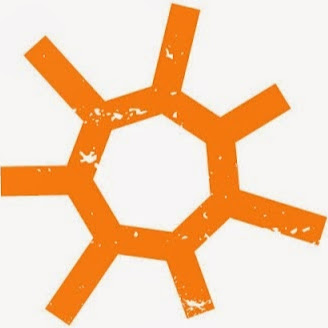
Physicians for Human Rights – Israel (PHRI) is a non-profit organization who defend the right to health of people living in occupied Palestine and in Israel. Their website has lots of relevant information, updates and reports relating to the right to health in occupied Palestine and in Israel.
View ResourcePHR 2
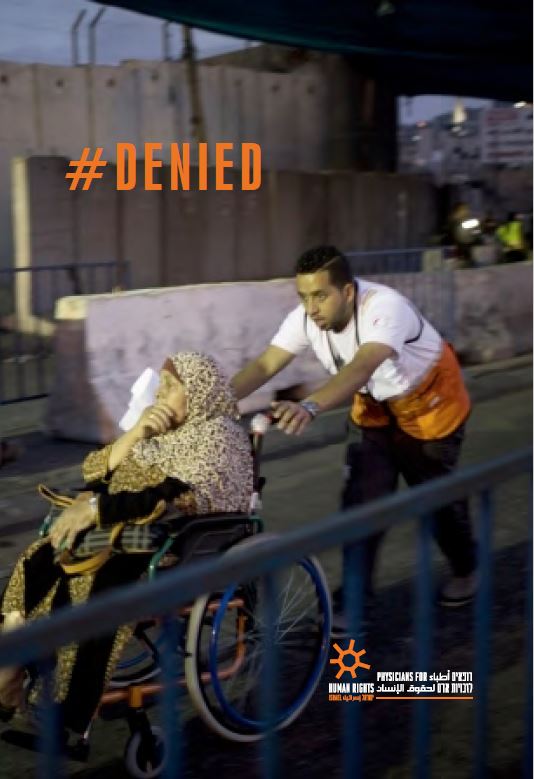
This report sums up PHR-Israel's year of activity monitoring, accompanying and representing applicants seeking free movement for medical purposes. It covers the obstacles plaguing those who apply for permits and describes the arbitrary way in which Israel limits the right of Palestinian residents to receive medical care, even when it is potentially life-saving.
View Resource
